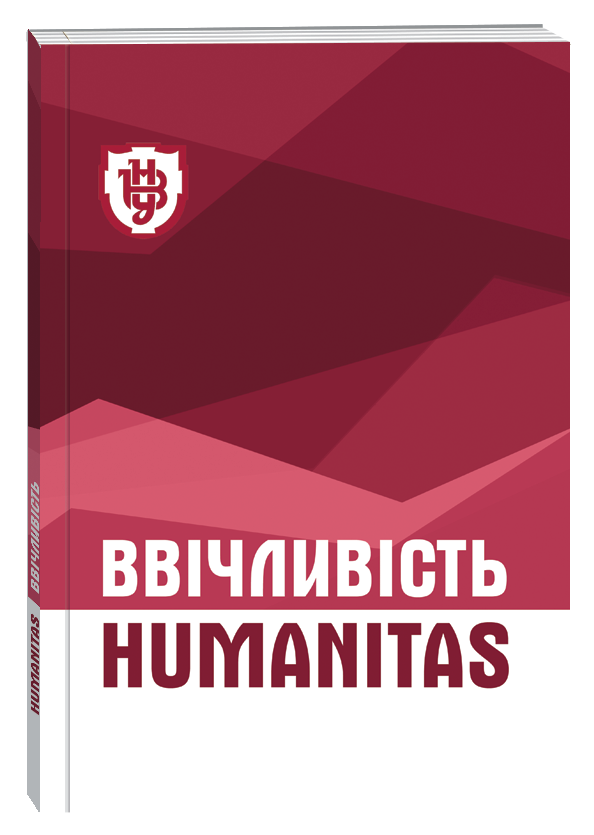PECULIARITIES OF TEACHING THE DISCIPLINE “METHODOLOGY AND TECHNOLOGY OF SCIENTIFIC RESEARCH” FOR FUTURE SPECIALISTS IN THE SOCIAL SPHERE
DOI:
https://doi.org/10.32782/humanitas/2021.6.8Keywords:
science, education, discipline, teacher, student, methodology, technology, scientific researchAbstract
The article highlights the features of teaching the discipline “Methodology and technology of scientific research” for students majoring in “Social work”, which allows to fulfill public and state orders, providing the social sphere with staff capable of professionally solving problems in research, organizational, managerial, scientific-pedagogical, socio-project, socio-technological activities. It is noted that today there is an urgent need for highly qualified social workers who have good general scientific and professional training, capable of independent scientific and creative work. Three concepts of organization of research on social work (reflexive, socialist, reformist) are given. It is established that the discipline “Methodology and technology of scientific research” helps students to master the basic principles and methods of scientific research in the social sphere, as well as to study the methodological foundations and technologies of scientific research. The structure of the course is considered: the purpose of the material, main tasks, questions, keywords, theoretical material, practical component, control questions and conclusions. Methodological principles of conducting research by future social specialists have been formed, in particular: a) science – based on available data of science and the use of conceptual apparatus and sociological tools of modern science; b) objectivity – the exclusion of possible influence of subjectivist moments of consciousness of students and respondents on research processes, collection, processing and analysis of information; c) comprehensiveness – clarifying the various properties and relationships of the studied object in order to obtain the most complete and comprehensive information about it; d) pragmatism – the researcher’s focus on conclusions and recommendations that will be useful for public practice life. Taking into account the analysis of scientists, the tasks for practical classes and tasks for independent work of future specialists in the social sphere are conditionally divided into four levels: reproductive, partly exploratory, research, creative. Having synthesized the results of the research, examples of tasks to be performed by future social workers during practical classes in the process of teaching the course “Methodology and technology of scientific research” have been developed.
References
Arkhypova, S.P. (2018). Formuvannia doslidnytskoi kompetentnosti maibutnikh mahistriv sotsialnoi roboty u protsesi profesiinoi pidhotovky [Formation of research competence of future masters of social work during vocational training]. Visnyk Cherkaskoho universytetu – Journal of Cherkasy University, 15, 3–12 [in Ukrainian].
Vazhynskyi, S.E., & Shcherbak, T.I. (2016). Metodyka ta orhanizatsiia naukovykh doslidzhen: navchalnyi posibnyk [Methods and organization of scientific research: tutorial]. Sumy : SumDPU im. A.S. Makarenka [in Ukrainian].
Zatserkovnyi, V.I., Tishaiev, I.V., & Demydov, V.K. (2017). Metodolohiia naukovykh doslidzhen: navchalnyi posibnyk [Methodology of scientific research: tutorial]. Nizhyn : NDU im. M. Hoholia [in Ukrainian].
Pein, M. (2007). Sotsyalnaia rabota: sovremennaia teoryia [Social work: modern theory], transl. from English O.V. Boyko, B.N. Motenko. Moscow : Akademyia [in Russian].
Povidaichyk, O.S. (2019). Teoriia i praktyka profesiinoi pidhotovky maibutnikh sotsialnykh pratsivnykiv do naukovo-doslidnytskoi diialnosti [Theory and practice of professional training for research activities of future social workers]. Extended abstract of Doctor’s thesis. Ternopil [in Ukrainian].
Prokhorchuk, O.M. (2018). Formuvannia doslidnytskoi kompetentnosti bakalavriv sotsialnoi pedahohiky u protsesi profesiinoi pidhotovky [Formation of research competence in bachelors of social pedagogy during vocational training]. Extended abstract of candidate’s thesis. Kyiv [in Ukrainian].
Savelchuk, I.B. (2016). Pidhotovka sotsialnykh pratsivnykiv za suchasnykh umov: innovatsiini tendentsii [Training of social workers in today’s context: innovative trends]. Visnyk Zhytomyrskoho derzhavnoho universytetu. Seriia “Pedahohichni nauky” – Bulletin of Zhytomyr State University. Series “Pedagogical Sciences”, 1(83), 120–125 [in Ukrainian].
Seiko, N.A., Andriichuk, N.M. (2020). Yakisni ta kilkisni metody doslidzhennia v kursi “Metodolohiia naukovykh doslidzhen” dlia maibutnikh sotsialnykh pratsivnykiv [Qualitative and quantitative research methods in the course “Research methodology” for future social workers]. Novi tekhnolohii navchannia – New learning technologies, 94, 299–305 [in Ukrainian].
Seiko, N.A. (2018). Fandraizynh u sferi osvity yak sotsialna tekhnolohiia (istoryko-pedahohichnyi kontekst problemy) [Fundraising in education as a social technology (historical and pedagogical context of the problem)]. Suchasni sotsialni tekhnolohii v osviti: monohrafia – Modern social technologies in education: monograph / ed. by N.A. Seiko. Zhytomyr : FOP Yevenok [in Ukrainian].
Shvyrev, B.S. (1995). Znanie i mirootnoshenie [Knowledge and attitude]. Filosofiya nauki. Vypusk 1: Problemy ratsional’nosti [Philosophy of science. Issue 1: Problems of rationality] / ed. by V.A. Smirnov. Moscow : IF RAN, pp. 163–184 [in Russian].







